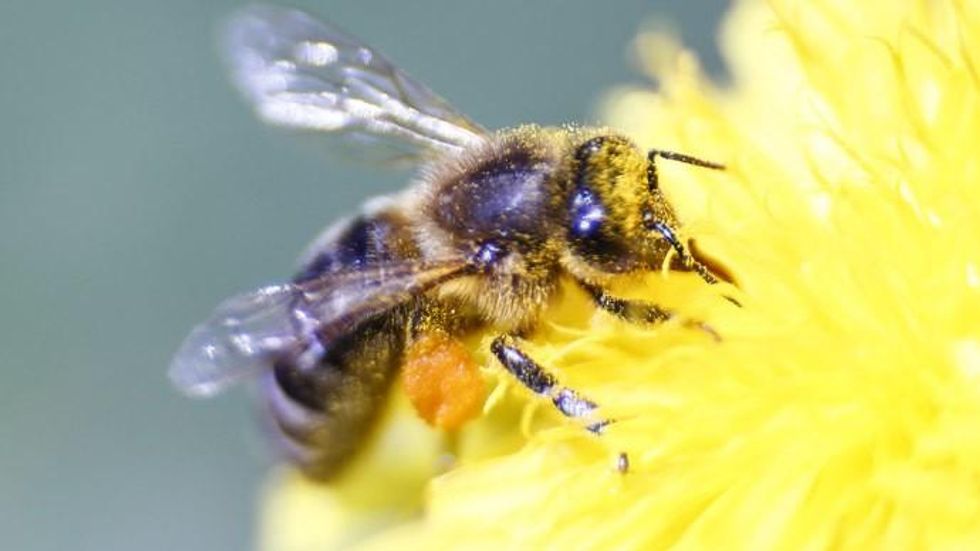Is Monsanto's Gene-Silencing Weapon Next?
As biotech giants move forward with the technology, specialists warn it could be dangerous

"To attempt to use this technology at this current stage of understanding would be more naive than our use of DDT in the 1950s," the National Honey Bee Advisory Board said in comments submitted to the Environmental Protection Agency before a Tuesday meeting to discuss the risks of this technology, according to the New York Times, which reported on this new development.
Developers of the technology say they are able to target the genetic sequences of specific species and silence them through RNA interference technology.
Yet, some specialists warn that "releasing gene-silencing agents into fields could harm beneficial insects, especially among organisms that have a common genetic makeup, and possibly even human health," according to the New York Times.
Monsanto is currently seeking regulatory approval for corn that uses gene-silencing to kill the western corn rootworm.
_____________________
An Urgent Message From Our Co-Founder
Dear Common Dreams reader, The U.S. is on a fast track to authoritarianism like nothing I've ever seen. Meanwhile, corporate news outlets are utterly capitulating to Trump, twisting their coverage to avoid drawing his ire while lining up to stuff cash in his pockets. That's why I believe that Common Dreams is doing the best and most consequential reporting that we've ever done. Our small but mighty team is a progressive reporting powerhouse, covering the news every day that the corporate media never will. Our mission has always been simple: To inform. To inspire. And to ignite change for the common good. Now here's the key piece that I want all our readers to understand: None of this would be possible without your financial support. That's not just some fundraising cliche. It's the absolute and literal truth. We don't accept corporate advertising and never will. We don't have a paywall because we don't think people should be blocked from critical news based on their ability to pay. Everything we do is funded by the donations of readers like you. Will you donate now to help power the nonprofit, independent reporting of Common Dreams? Thank you for being a vital member of our community. Together, we can keep independent journalism alive when it’s needed most. - Craig Brown, Co-founder |

"To attempt to use this technology at this current stage of understanding would be more naive than our use of DDT in the 1950s," the National Honey Bee Advisory Board said in comments submitted to the Environmental Protection Agency before a Tuesday meeting to discuss the risks of this technology, according to the New York Times, which reported on this new development.
Developers of the technology say they are able to target the genetic sequences of specific species and silence them through RNA interference technology.
Yet, some specialists warn that "releasing gene-silencing agents into fields could harm beneficial insects, especially among organisms that have a common genetic makeup, and possibly even human health," according to the New York Times.
Monsanto is currently seeking regulatory approval for corn that uses gene-silencing to kill the western corn rootworm.
_____________________

"To attempt to use this technology at this current stage of understanding would be more naive than our use of DDT in the 1950s," the National Honey Bee Advisory Board said in comments submitted to the Environmental Protection Agency before a Tuesday meeting to discuss the risks of this technology, according to the New York Times, which reported on this new development.
Developers of the technology say they are able to target the genetic sequences of specific species and silence them through RNA interference technology.
Yet, some specialists warn that "releasing gene-silencing agents into fields could harm beneficial insects, especially among organisms that have a common genetic makeup, and possibly even human health," according to the New York Times.
Monsanto is currently seeking regulatory approval for corn that uses gene-silencing to kill the western corn rootworm.
_____________________

